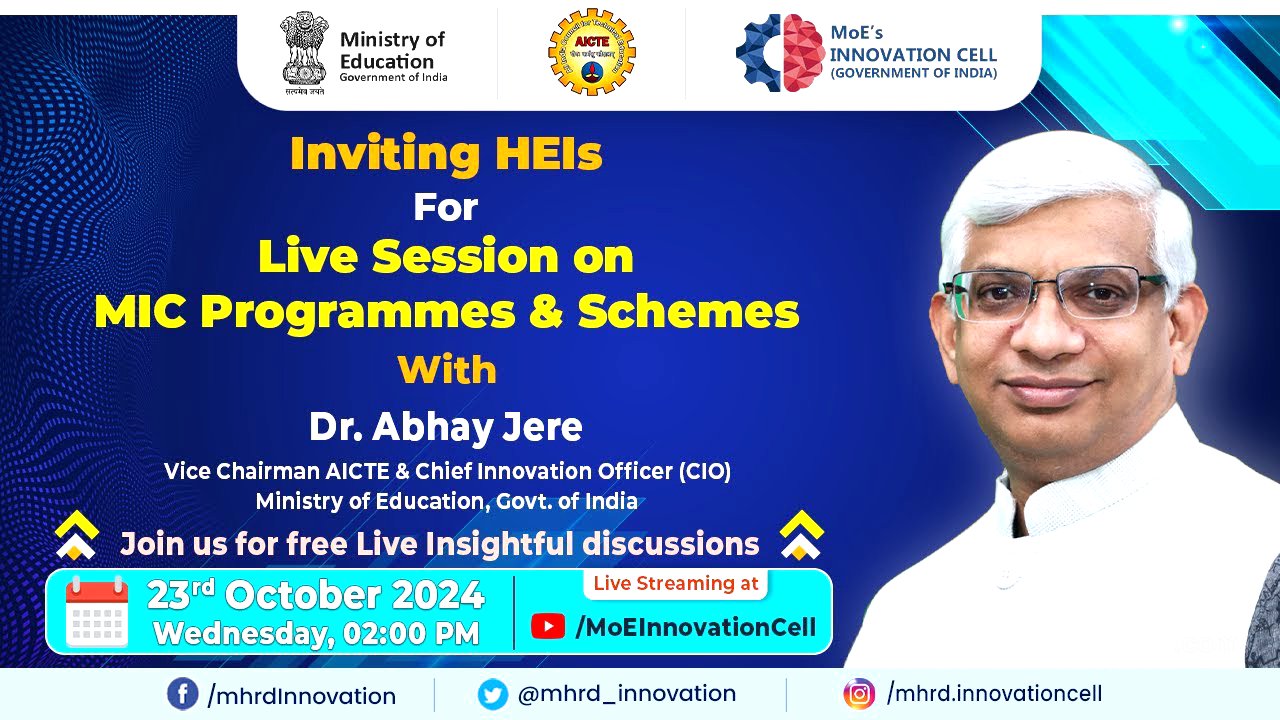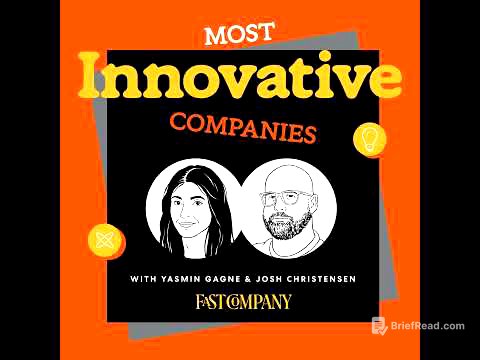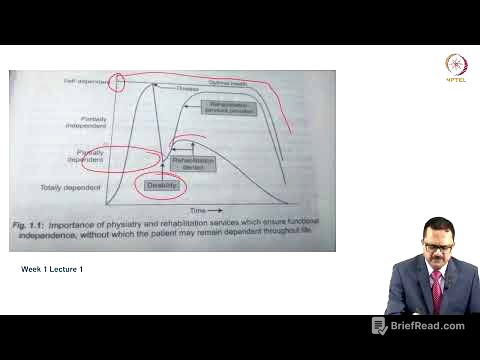TLDR;
This YouTube video features a discussion on various programs and schemes by the Ministry of Education Innovation Cell (MIC) and the All India Council for Technical Education (AICTE) aimed at fostering innovation and entrepreneurship in Indian educational institutions. The speaker highlights the importance of transforming technical institutions into hubs of problem-solving and idea generation, not just for India but globally.
Key points:
- Innovation and Entrepreneurship should be integral part of academics.
- Institutions should focus on pushing good ideas to evolve as startups.
- MIC/AICTE are creating an investor network to support startups.
- Emphasis on experiential learning and collaboration between institutions.
Introduction and Welcome [0:05]
The session is opened with a welcome to Dr. AB J, Vice Chairman of AICTE, and Chief Innovation Officer of the Ministry of Education Innovation Cell. The purpose of the live session is to discuss MIC programs and schemes with faculty members and students from various Innovation Council (IIC) institutes. Appreciation is expressed for the institutions' participation in boot camps and the overwhelming response to Smart India Hackathon 2024, which saw a record-breaking number of internal hackathons.
Vision for Innovation Ecosystem [1:56]
The speaker shares the vision of creating a thriving innovation ecosystem within educational institutions, noting that this movement, initiated in 2018, is beginning to yield positive results. The goal is to encourage institutions to view innovation and entrepreneurship as integral academic activities, fostering a culture where students become problem solvers capable of generating globally relevant ideas. The speaker thanks institutions for supporting this vision and acknowledges the efforts of the AICTE team in driving this initiative.
Evolution and Customisation of IIC Calendar [5:51]
The speaker reflects on the development of the IIC (Institution's Innovation Council) activity, acknowledging the initial uncertainty and the absence of a global model to follow. The approach involved creating a guiding map for institutions to establish vibrant innovation ecosystems. The IIC calendar has evolved over time based on feedback and experiences from institutions. A dedicated brainstorming session is planned to further refine the IIC calendar, incorporating inputs from on-the-ground change agents to ensure its effectiveness.
Expectations from High-Performing IICs [9:22]
The speaker notes that some IICs are performing excellently, achieving three and four-star ratings. Higher expectations are set for these institutions, urging them to be more aggressive in promoting innovation and entrepreneurship. The speaker mentions a report indicating over 6,000 student and faculty startups within various organisations, but stresses the need to increase this number significantly, given the large student population in technical education. The valuation of these startups is around ₹15,000-16,000 crore, highlighting the wealth-generating potential of young students.
Focus on Startups and Investor Engagement [12:40]
The speaker urges well-performing IICs to focus on nurturing good ideas into registered and flourishing startups. The ultimate success of the program is measured by the startups' ability to secure investor support and achieve successful exits. To facilitate this, AICTE is creating an investor network and will provide details on its website. Institutions are encouraged to create their own investor networks and host sessions to prepare innovators for investor interactions. Success stories and wealth generation at the college level are highlighted as motivators for students to pursue entrepreneurship.
Economic Goals and the Role of Technical Institutions [16:39]
The speaker outlines the broader economic goals of building India into a $15-20 trillion economy, emphasising the role of youngsters in generating wealth. Technical institutions are identified as key nurturers of young talent, regardless of their ranking or status. The speaker stresses that innovative ideas can emerge from any institution, and the focus should be on creating an ecosystem that captures and converts these ideas into wealth.
Engaging Non-Functional IICs and Low-Cost Innovation [19:39]
The speaker expresses a keen interest in engaging non-functional IICs, aiming to bring them into the innovation movement. IICs are categorised into three groups: high-performing, moderately performing, and non-functional. The speaker encourages the latter to start their journey, highlighting that innovation and entrepreneurship can be a low-cost or no-cost activity. Funding can be raised through innovative means, as entrepreneurship inherently involves business viability and money generation.
Utilising IIC Forums and Solving Institutional Challenges [21:42]
The speaker encourages institutions to use the IIC forum to connect with investors and seek their guidance. Institutions can leverage their own students to solve administrative, logistical, and academic challenges, turning these into innovative projects and internships. Examples include reducing electricity bills, waste management, and water conservation. The speaker notes that institutions can provide ample opportunities for innovative projects, improving students' employability.
Workshops, Design Thinking, and IPR Sensitisation [24:34]
The speaker suggests that non-functional IICs can easily conduct workshops on design thinking and IPR (Intellectual Property Rights), utilising available online resources. The AICTE team can provide curated videos for these workshops at no cost. Sensitising students to IPR and design thinking is essential for problem-solving and visualising solutions. Idea challenges, both internal and external, should be encouraged, with students focusing on solving their own institutions' problems.
Developing Internal Systems and Changing Mindsets [27:07]
The speaker suggests that institutions task students with building internal systems such as ERP, hostel management, mess management, and learning management systems. A mechanism should be created to ensure the maintenance and continuity of these projects. The key message is to change mindsets and outlooks to foster innovation and entrepreneurship.
Leveraging Incubation Centres and Building Relationships [28:02]
The speaker notes the presence of numerous incubation centres in most cities and encourages institutions to arrange visits and interactions with startups in these centres. Building relationships with incubators can provide students with guidance and support. While not every college needs its own incubator, creating linkages with existing incubators is crucial. AICTE is working to create a formal network of incubators associated with IICs.
Yukti Platform and Local Innovation Challenges [30:46]
The speaker discusses the Yukti platform, where institutions can submit innovative ideas. While over 1.5 lakh ideas have been submitted, AICTE is working to offer more to those not selected for funding. Institutions are encouraged to modify their submissions based on Technology Readiness Level (TRL) guidelines. Colleges are also encouraged to organise their own Yukti challenges in their vicinity, fostering competition and collaboration.
Collaboration and Interdisciplinary Innovation [34:28]
The speaker highlights the importance of collaboration between institutions, noting that innovation often occurs at the intersection of different domains. Institutions with expertise in hardware, software, or domain knowledge should collaborate to create comprehensive solutions. The Stanford India Biodesign program is cited as a successful example of interdisciplinary collaboration, where IIT Delhi students identified and solved problems at AIIMS Delhi.
Community Engagement and Experiential Learning [38:17]
The speaker suggests that smaller institutions can assist local administrative bodies with technology solutions, such as building sewage maps or improving local systems. AICTE approves these activities as internships, promoting experiential learning. Going out into the field and working on real-world problems fosters innovation and the development of new products.
AICTE's Vision and Collaborative Approach [40:10]
The speaker reiterates AICTE's commitment to fostering an innovation and entrepreneurship ecosystem, inviting institutions to be stakeholders in this vision. The approach is collaborative, with AICTE learning alongside the institutions. Mistakes are not penalised, and guidance is provided. Institutions are encouraged to participate in AICTE sessions and understand the conveyed messages.
Internal Hackathons and Competitive Market [41:06]
The speaker highlights the success of internal hackathons, with over 2,000 institutions participating. This indicates a vibrant ecosystem in those institutions, and others must adopt similar systems to remain competitive. In the technical education market, institutions are increasingly marketing themselves based on patents, startups, and investor connections, in addition to placement rates.
Innovation Centres and Technology Transfer [43:25]
The speaker mentions AICTE's establishment of nine Innovation Centres, with plans to increase this number to 30. These centres assist institutions in technology transfer and IPR-related activities. Institutions are encouraged to contact these centres for help with ideation, design thinking, and IPR programs. The Innovation Centres have already reached out to over 4,000 institutions, and continuous engagement is essential.
Capila Scheme and Knack Accreditation [46:32]
The speaker introduces the Capila scheme, which reimburses funds used for IP filing. This is a good way for institutions to receive funds from the government, which is beneficial for NAAC accreditation. Institutions should identify good IPs, file patents, and engage with patent attorneys. AICTE is taking a systematic approach to handhold institutions, providing policies, funding programs, and innovative courses.
Systematic Approach and Call to Action [47:49]
The speaker concludes by emphasising that AICTE's approach to promoting innovation and entrepreneurship is unprecedented globally. Success depends on the support and collaboration of institutions. The goal is to make India the best and a developed nation by 2047.
Questions and Answers Part 1 [49:40]
The speaker addresses questions from the audience, including whether two IICs can jointly organise online sessions (yes), how to approach different incubation centres and their schemes (talk to them and sign MOUs), and why incubation centres take different equity (every incubator has a different policy, and it's negotiable).
Questions and Answers Part 2 [54:27]
The speaker answers questions about how management students can benefit from innovation (by joining startups and collaborating with technical teams), the fees funded for IP filing (₹5,600 for patent filing fees and ₹4,000 for examination), and where to find information on Capila (cap.aicte.gov.in).
Questions and Answers Part 3 [58:39]
The speaker addresses the issue of surrounding industries not responding to institutions, suggesting hiring industry experts as Professors of Practice and engaging through proficiency programs. The speaker also discusses fostering innovation in non-engineering settings, emphasising the importance of domain expertise and collaboration with technical people.
Regional Mentoring and Ukti Funding [1:08:48]
The speaker confirms that regional mentoring sessions can be arranged and that the funding limit for Ukti National Innovation Challenge is ₹10 lakh. The speaker also encourages institutions to get in touch with IICs for experts on IP, technology transfer, and design thinking.
Reverse Model for Expert Onboarding and AIC Connect Magazine [1:09:36]
The speaker proposes a reverse model where experts are suggested by colleges, and their activity is appreciated. The speaker also encourages everyone to subscribe to and write in the AIC Connect magazine to promote their institution.
Closing Remarks [1:13:28]
The speaker concludes the session, giving credit to the AICTE team for their hard work and encouraging continued interaction and support.









